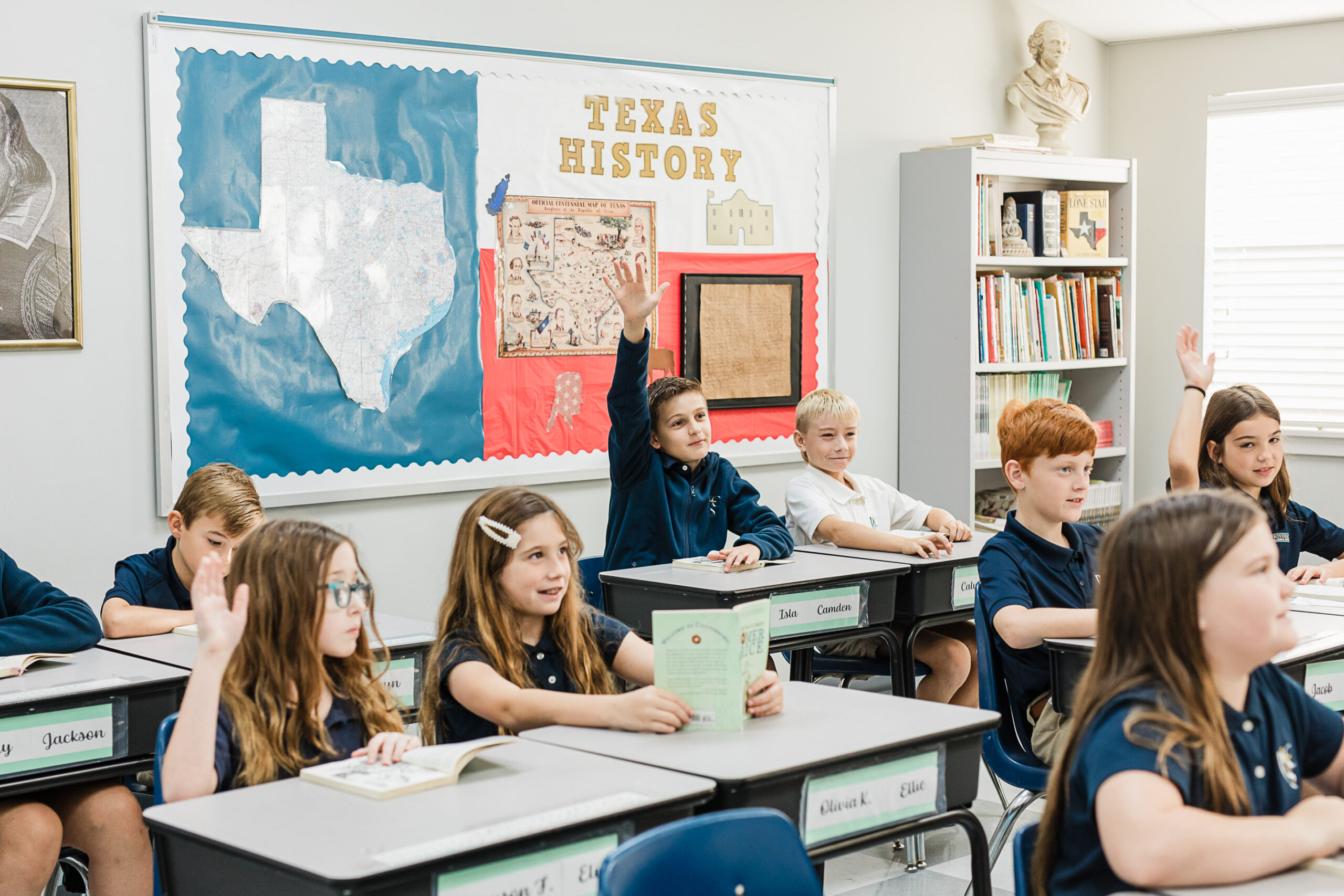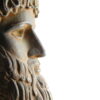What are the Humanities? More than History in the Classical School
By Dr. Dawn Ontiveros, Dean of Academics
When families first hear the word Humanities, they often think only of history — names, dates, and events to be memorized. While history is indeed at the heart of the Humanities, a robust classical education sees it as much more. At Providence Classical School, the Humanities are not a single subject but an integrated study of God’s work in the world, the story of humanity across time, and the ideas that have shaped civilizations. It’s a journey that develops students into thoughtful, virtuous leaders who can engage the world with wisdom, truth, and beauty.
This blog will unpack what the Humanities mean in the context of classical Christian education, how they extend far beyond history alone, and why they are essential for forming the hearts and minds of students at Providence Classical School.
The Humanities Defined
In the broadest sense, the Humanities are the disciplines that explore what it means to be human: history, literature, philosophy, theology, art, music, and culture. In modern education, these fields are often studied in isolation. Students might read a Shakespeare play in English class, memorize dates for a world history exam, and discuss ethics briefly in a civics course. But the integrated vision of the Humanities in a classical school unites these subjects into a cohesive narrative that gives meaning and context. This narrative is presented in a sequential manner and cycled through several times from Pre-K through 12th grade.
At Providence Classical School, Humanities education means students are not merely studying events or texts in isolation — they are exploring the connections between them. For example, when seventh graders read Homer’s Odyssey, they don’t just analyze the text as literature. They also study the ancient Greek world, its values, government, art, and philosophy, asking questions about how the Greeks understood heroism, the gods, and humanity’s place in the cosmos. Then, they contrast these ideas with the biblical worldview, forming critical and spiritual discernment.
In other words, Humanities is not just about knowing facts. It’s about understanding ideas, seeing how they shape societies, and evaluating them in the light of God’s truth.
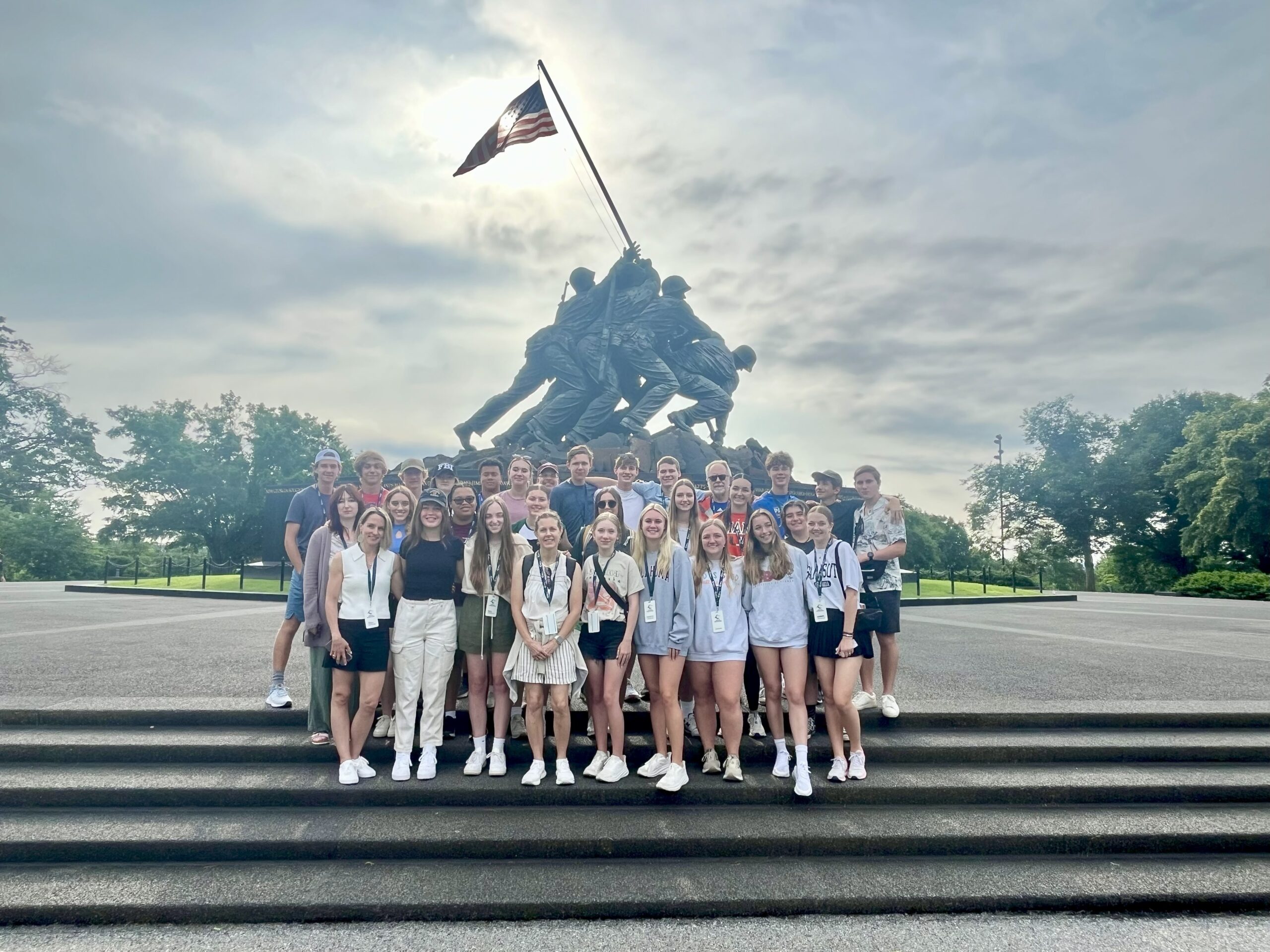
More Than History
History as a Backbone
History does serve as the backbone of the Humanities at Providence Classical School. We study history because it is God’s story, HIS story. We use historical and biblical timelines as mental pins upon which we can associate a variety of thoughts and information throughout civilization. From the timeline of creation to modern events, students trace the unfolding of God’s providence in human affairs. But history is more than a chronology of kings, wars, and treaties. It is the narrative of humanity’s search for meaning, order, and truth.
Literature as a Conversation Across Centuries
In Humanities classes, literature becomes a dialogue partner with history. When students read Augustine’s Confessions, they see how the turbulence of the late Roman Empire shaped his longing for truth. When they study Shakespeare’s plays, they discover how Elizabethan politics and theology influenced his characters and themes. Literature is not just a story — it’s a reflection of the human heart in its historical and cultural context.
Philosophy and Theology as the Framework
The Humanities also invite students to wrestle with the great questions:
• What is justice?
• What is beauty?
• What is truth?
• What does it mean to live a good life?
In the classical Christian tradition, these questions are framed by theology. Students read Plato and Aristotle, but they also compare those philosophers to the wisdom of Scripture. By seeing how thinkers throughout history have grappled with life’s deepest questions, students are equipped to engage with today’s cultural debates thoughtfully and faithfully.
Art and Music as Cultural Expression
The study of Humanities at Providence is not limited to texts. Art, architecture, and music are also part of the conversation. Students learn to see Michelangelo’s Sistine Chapel as not just beautiful, but as a theological statement. They recognize how Bach’s music reflects a worldview rooted in order and divine glory. This broadens their imagination and helps them appreciate the richness of human creativity.
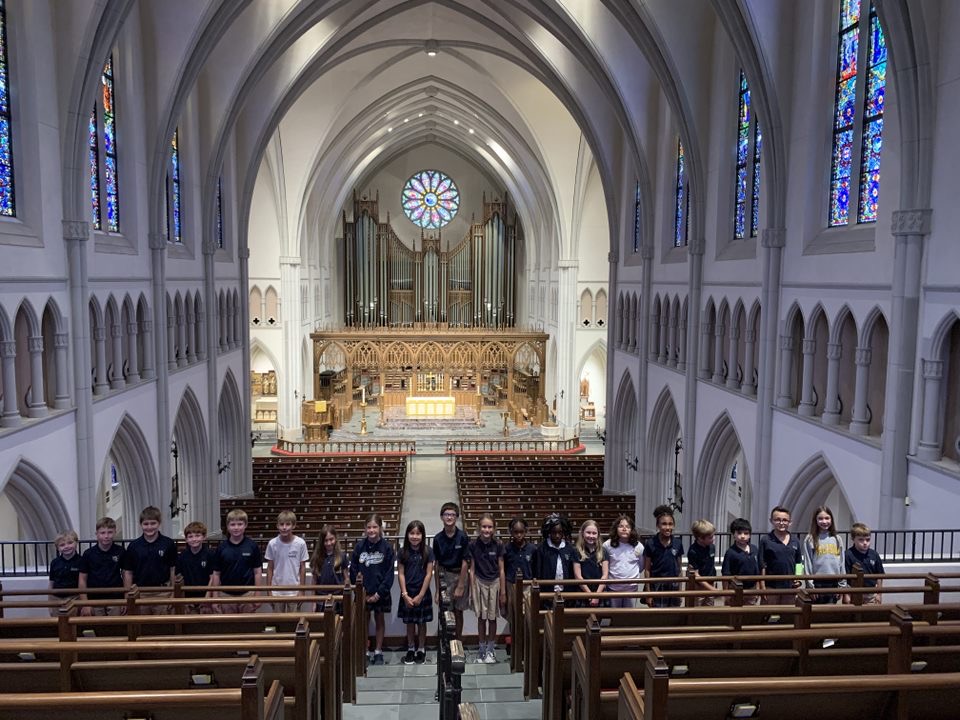
The Breadth of a Humanities Education
At Providence Classical School, the Humanities curriculum spans a wide arc of history, giving students both a breadth and depth of perspective. The program follows a chronological sequence, cycling through ancient, medieval, early modern, and modern eras multiple times as students advance. Each time a student revisits a period of history, they gain a greater depth of understanding.
- Grammar School (PreK–6th grade): Students begin by learning stories from history and literature. They memorize timelines, study maps, and engage with historical narratives through songs, art, plays, projects, and hands-on experiences.
- Logic School (7th–8th grade): Students dive deeper into cause-and-effect thinking. They analyze primary sources, read great books, and start asking “why” questions about the past. Literature and history are taught side by side, showing the interplay of ideas and events.
- Rhetoric School (9th–12th grade): Here, students engage at the highest level. They discuss philosophy, theology, and literature with sophistication, writing essays, debating, and delivering presentations that synthesize their knowledge. They no longer just learn history — they interpret it, evaluate it, and contribute to the ongoing conversation of ideas.
This broad curriculum ensures that Providence students are not limited to memorizing facts. They are formed as whole persons, equipped to think, discern, and communicate.
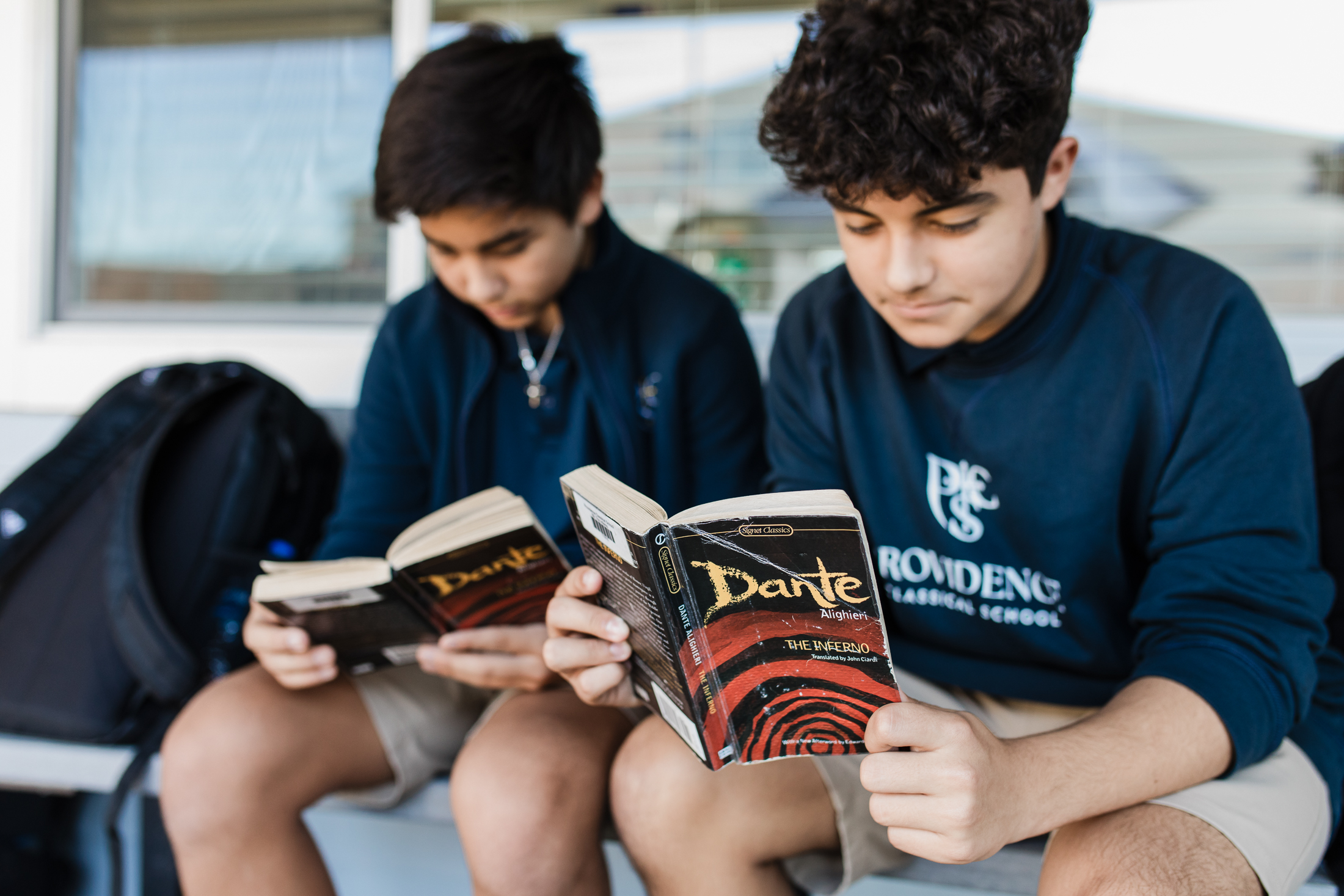
The Depth of the Humanities
While breadth is important, depth makes the Humanities transformative. At Providence, students don’t just skim the surface of history and literature. They read primary sources, grapple with challenging texts, and sit with questions that don’t have easy answers.
For instance:
- Seventh graders might read an excerpt from The Republic and debate Plato’s vision of justice.
- Ninth graders study Dante’s Inferno and reflect on the nature of sin, redemption, and the afterlife.
- Eleventh and Twelfth graders wrestle with more modern writers like Dostoevsky or C.S. Lewis, engaging with themes of faith, doubt, and meaning in a post-Christian culture.
This depth requires intellectual rigor, but it also shapes character. Wrestling with Augustine’s confessions of sin and grace, or with Bonhoeffer’s writings on discipleship, invites students not just to know about these figures but to ask, “What do I believe? How should I live?”
“The point of history is to teach you to be like the men of Issachar ‘who had understanding of the times, to know what Israel ought to do’ (1 Chronicles 12:32). And the reason history is so important is that we are actually all characters in a story. What happens in chapter 13 is intricately connected to the things that happened in chapters 1-12.”
Classical Me, Classical Thee by Rebekah Merkle
Why the Humanities Matter Today
In a world dominated by technology, STEM fields, and rapid cultural shifts, some may ask, “Why devote so much time to the Humanities?”
The answer is simple: because the Humanities form human beings.
- Critical Thinking: By reading complex texts and analyzing multiple perspectives, students learn to think logically and discern truth from error.
- Communication: By writing essays, delivering speeches, and participating in Socratic discussions, they learn to articulate their thoughts clearly and persuasively.
- Cultural Literacy: By studying history, literature, art, and philosophy, they gain a deep understanding of the forces that have shaped the world we live in.
- Moral Imagination: By engaging with stories of courage, tragedy, love, and sacrifice, they develop empathy and virtue.
- Faithful Witness: Most importantly, by seeing history through the lens of God’s providence, students learn how to live faithfully as Christians in the modern world.
At Providence Classical School, we believe the Humanities are not optional enrichment. They are central to forming wise, virtuous leaders who can serve Christ in every sphere of life.
The Providence Difference
What sets Providence Classical School apart is not only the content of the Humanities but also the manner in which it is taught. Classes are discussion-based, rooted in primary texts, and designed to foster community. Teachers are not just instructors but mentors who guide students to think deeply, ask good questions, and seek truth together.
Moreover, all Humanities study at Providence is Christ-centered. While students read pagan authors, Enlightenment skeptics, and modern critics, they do so with discernment, always bringing ideas back to the eternal truth of Scripture. This equips them not only to understand the world but also to engage it with grace and conviction.
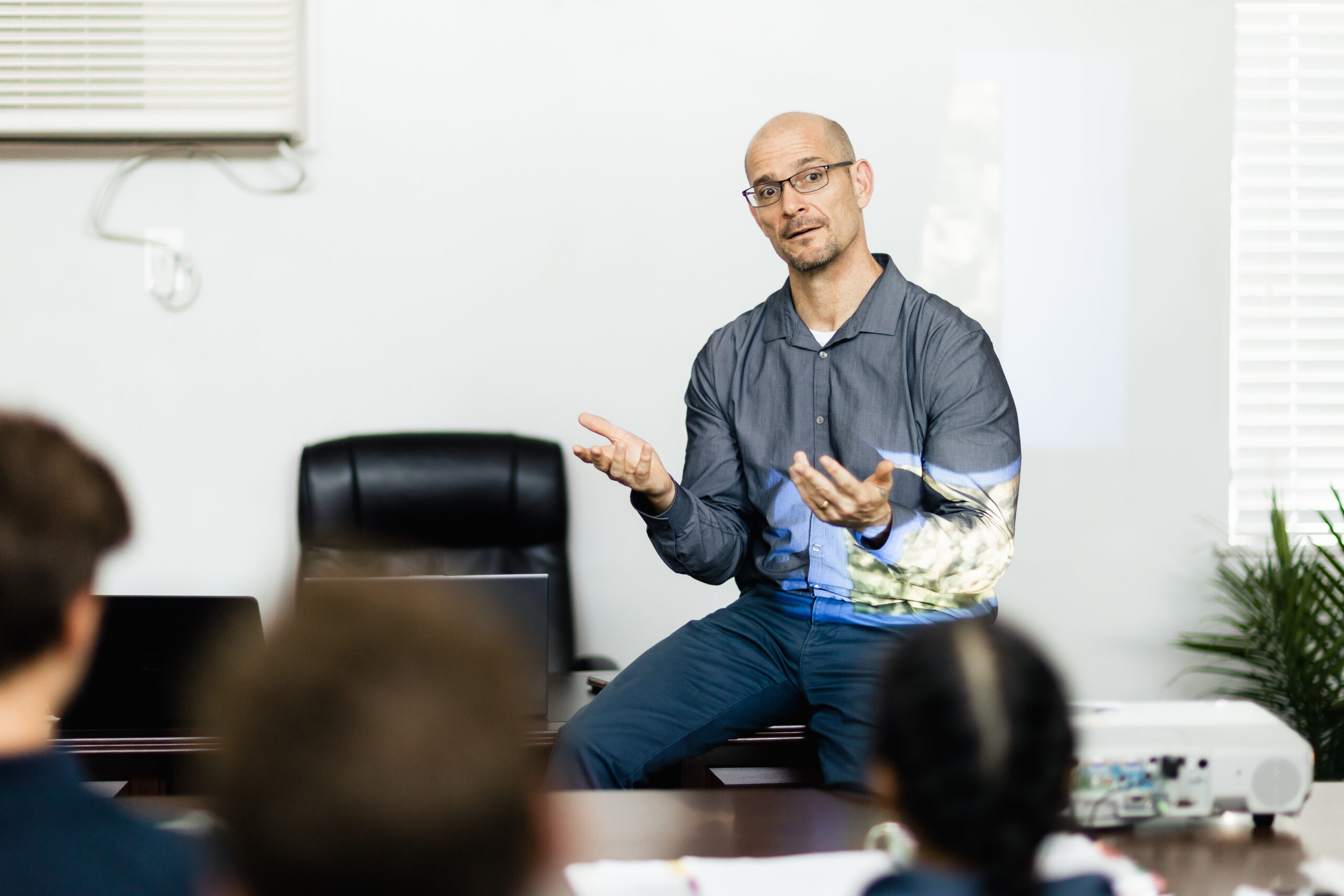
A Day in the Life: Humanities in Action
What does this integrated learning look like in practice? Let’s peek into the classrooms of two students at very different stages of their Providence journey.
A Day in the Life of a Second Grader
In second grade, the threads of Humanities are woven gently but meaningfully into every subject. One morning, students work on memorizing Ephesians 2. As they recite the passage together, their teacher explains that this was originally a letter Paul wrote to the people of Ephesus. This sparks curiosity: Who were these people? What was their city like?
In history, the class explores the ancient city of Ephesus, studying the ruins of the Library of Celsus. They marvel at the intricacy of the columns still standing today and learn to identify the different types of columns the Greeks and Romans built. Math reinforces this history lesson as students practice estimation, calculating how many columns might once have stood in the Roman Forum. In art, they draw Ionic columns and form them out of clay.
Later, in Bible, students return to the truth of God’s Word: they are created in His image, and because of that, every human heart longs to worship. They contrast this biblical truth with what they learned about the Greeks and Romans, who filled their cities with temples to false gods. Their discussion reminds them that while ancient people sought meaning in idols, we have the gift of knowing and worshiping the one true God.
For second graders, Humanities is not a dry study of facts. It’s a living story — Scripture, history, math, and fine arts working together to show them the beauty of God’s world.
A Day in the Life of a Tenth Grader
By tenth grade, the same integrated vision takes on a more rigorous and sophisticated shape. In Humanities, students are immersed in the American Revolution, studying primary texts such as Thomas Paine’s Common Sense, the Declaration of Independence, and Frederick Douglass’s piercing speech, What to the Slave is the Fourth of July? Through these works, they evaluate themes of freedom, justice, and human dignity.
In Composition & Literature, they shift to poetry of the Revolutionary era, exploring how writers gave voice to the ideals of liberty and sacrifice. From Seamus Heaney’s reflective “Villanelle for an Anniversary” to Longfellow’s stirring “Paul Revere’s Ride” and Emerson’s timeless “Concord Hymn,” students see how literature both celebrated and critiqued the birth of a nation.
In the Intro to Theology course, discussions turn to the doctrine of the imago Dei — that all people are made in the image of God. Students wrestle with how this truth shaped (and at times was contradicted by) the founding principles of the United States. They are invited to think critically about the ways theology and political ideals intersected in America’s earliest years.
Finally, in Art History, students explore the Neoclassical art and music of the Revolutionary period, recognizing how architecture, painting, and composition reflected the ideals of order, balance, and civic virtue that animated the Revolution.
By tenth grade, Providence students are not only connecting history and literature, art and theology — they are learning to discern how ideas about freedom, truth, and human worth continue to shape our nation today.
This integrated approach makes learning alive and relevant. Students see the connections between disciplines, cultivating wisdom that no single subject could achieve in isolation.
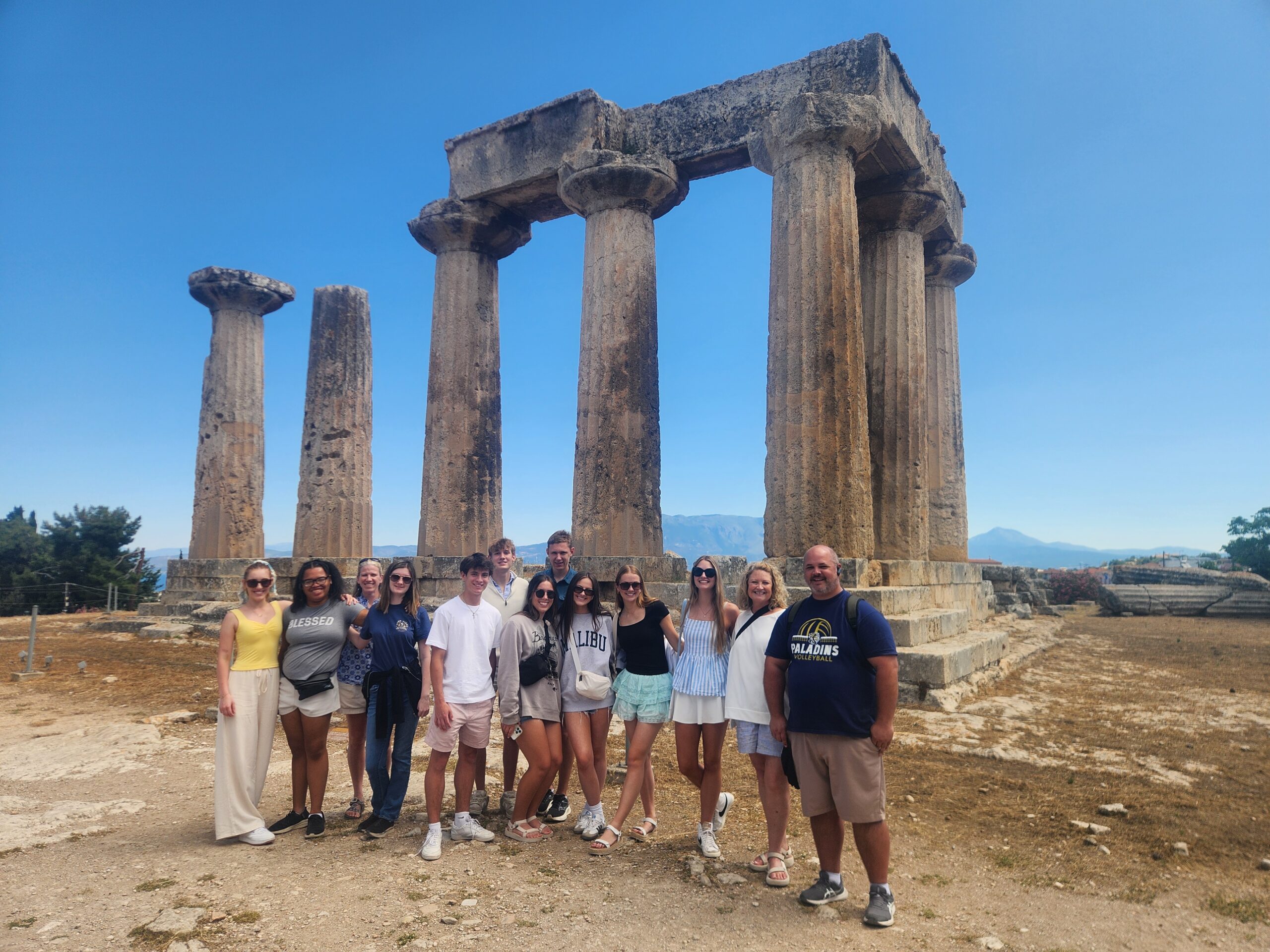
Final Thoughts: More Than History
So, what are the Humanities? At Providence Classical School, it is far more than history. It is the study of humanity in all its richness — its stories, ideas, achievements, failures, and longings — examined in the light of God’s providence and truth.
Through the Humanities, students learn not only about the past, but also how to live faithfully in the present and shape the future. They discover that education is not just about passing exams but about becoming fully human — wise, virtuous, and eloquent servants of Christ.
This is the breadth and depth of Humanities at Providence Classical School: not just information, but formation. Not just knowledge, but wisdom. Not just history, but the story of humanity redeemed by the grace of God.
For more information on classical Christian education at Providence Classical School,
watch our film, and schedule a tour today!
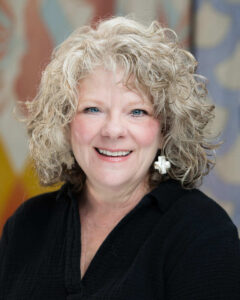
About Dr. Dawn Ontiveros:
Dr. Ontiveros joined the Providence Classical School faculty in 2008. She has served as a Grammar School teacher, Latin teacher, and Logic School teacher and now serves as the Dean of Academics for PreK-12th grade. She is a certified teacher, a special education teacher, and a licensed professional counselor. She was a previous school psychologist for a local school district and an adjunct professor at a nearby university in the area of counseling. Dawn and her husband, Dr. Joe Ontiveros, have been married for 30 years and have two amazing daughters who graduated from PCS. Her passions include art appreciation, reading, journaling, walking the family pug named Margo, and reading God’s Word.
Read more about classical Christian education on the PCS Blog:
The “Good Soil” of Classical Christian Education
Is it Too Late for My Child to Start Classical Christian Education?
The Ministry of Discipleship: Forming Disciples as a Teacher at Providence
Science in the Classical Christian School
Why It’s Important to Read Hard Books: The Case for Intellectual Challenge
The Classical Studio – Integrating Art in the Classical Christian Classroom



